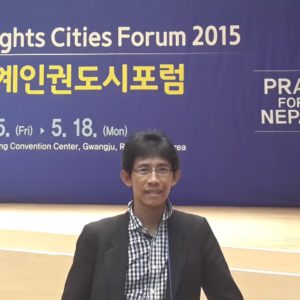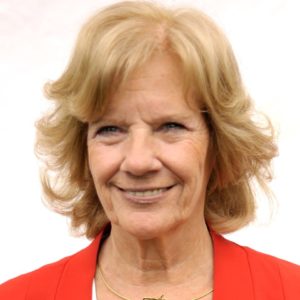Older Persons Roundtable
Stakeholders Roundtables Venue: Room 21 Casa De La Cultura- Daniel Schensul UNFPA

- Elijah Mwega Gatambia Director KARIKA (Kenyan Aged Require Information Knowledge And Advancement) Kenya

- Fahmi Hidayat Government Of Wonosobo Regency Indonesia

- Marta Benavides Director SERR – Servicios Ecumenicos Para Reconciliacion Y Reconstruccion Y SIGLO XXIII El Salvador

- Mehran Madani Assistant Professor American University Of Beirut Canada

- Silvia Gascon Professor ISALUD University Argentina

- Silvia-Perel Levin Chair NGO Committee On Ageing Geneva United Kingdom of Great Britain and Northern Ireland

Working Together to Respond to Ageing Urban Populations: Opportunities and Challenges
The Roundtable will discuss the implications of ageing urban populations and how the rights of older people can best be protected and promoted in cities through the implementation of the New Urban Agenda. Panelists will be invited to discuss why ageing urban populations are a significant issue, with a particular focus on low and middle income countries and low income settings, challenging the dominant belief that ageing populations are occurring only in high income countries. The discussion will look at the main challenges and opportunities facing older persons living in urban environments and how the New Urban Agenda responds to these with a focus on ensuring that cities are inclusive for all, regardless of socio-economic status, other intersecting forms of discrimination, and particularly older age. It will specifically showcase how the rights of older people can be protected and promoted in cities in low and middle income cities. Panelists will provide examples of best practices through their extensive experience addressing these issues in their communities across the world. They will link their examples of best practices and experiences to specific paragraphs and calls for action in the New Urban Agenda. The discussion will also look at what kind of partnerships are required to enable change to happen, based both on the recommendations of the New Urban Agenda and on the experiences of the panelists in working with a number of stakeholders and groups, including local governments.
Objectives of the Roundtable
- Recognize and appreciate the growing number of older urban residents, particularly in low and middle income countries, and what that means in terms of planning and budgeting for their needs.
- Discuss ageing urban populations as a positive trend and recognize that ageing populations are not a burden or financial drain.
- Better understand the challenges faced by cities in making them inclusive, positive, and supportive spaces for persons of all ages but particularly for older residents.
- Share best practices in ensuring cities protect and promote the rights of older persons.
- Pick up ideas that can be implemented in places of origin.
- Find partners in making cities age friendly.
- Develop a greater understanding of the challenges facing older urban residents.
Guiding Questions
- Why are ageing urban populations an important and significant issue for the New Urban Agenda?
- What are the issues that older urban residents face, and how can cities become more inclusive?
- What are the unique challenges that face cities in low and middle income countries seeking to respond to ageing urban populations?
- What solutions have already been implemented, and how can we use these to begin addressing these challenges?
- What are the challenges of implementing the recommendations made in the New Urban Agenda around ageing and older persons?
- What kinds of partnerships are required to deliver this needed change and the Quito Implementation Plan?
Roundtable Follow Up
- How do you propose to monitor the outcomes of this session in order to report back on progress at the 9th Session of the World Urban Forum (2018, Kuala Lumpur, Malaysia)?
